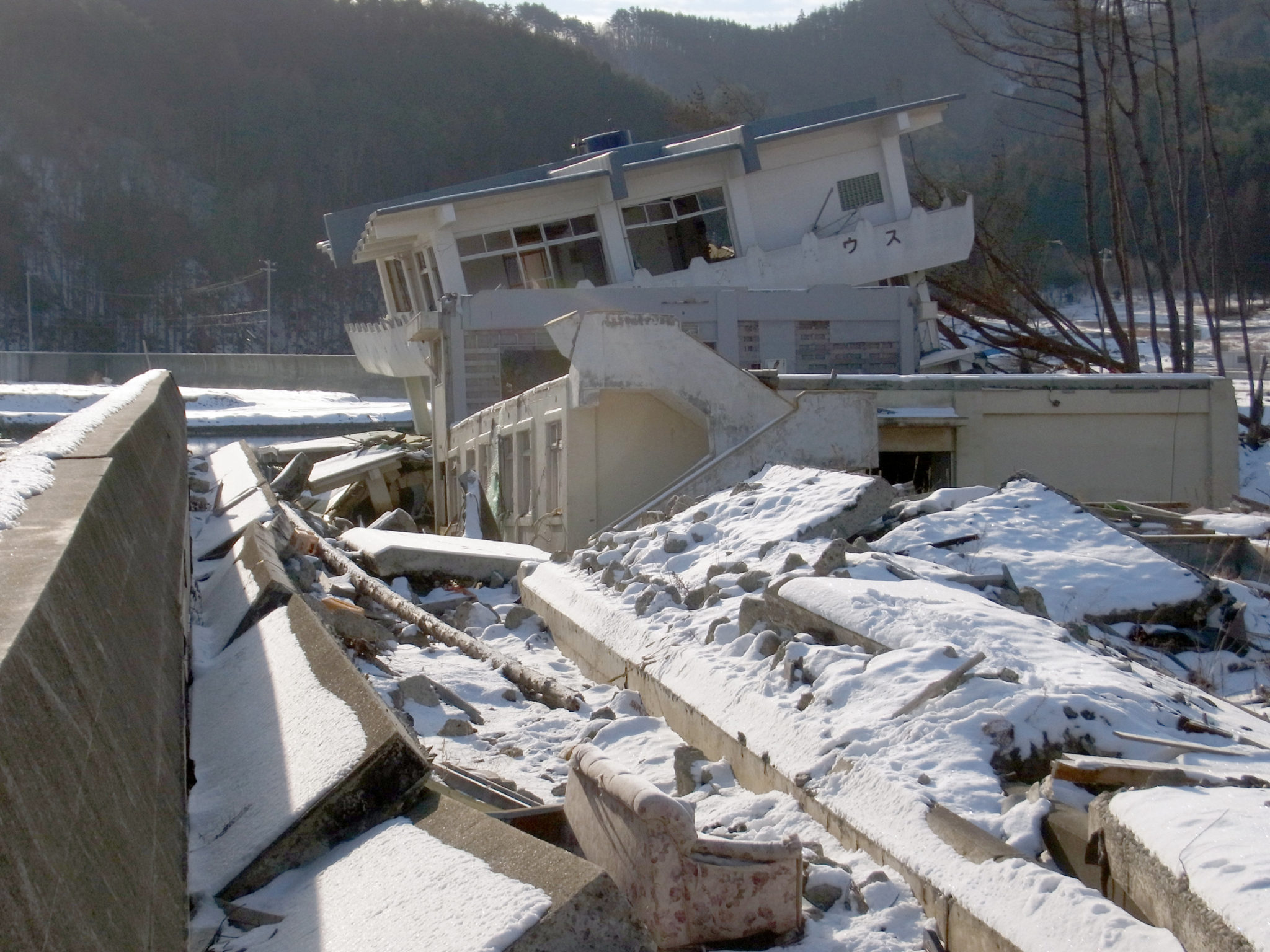Leinster's Scott Fardy gave an incredible insight into being in the middle of the 2011 earthquake in Japan on OTB AM, and how he felt rugby played a part in the recovery of the country.
Fardy played for Kamaishi Seawaves for three seasons from 2009, which left he and thousands of others in the midst of a magnitude-9.0 earthquake struck off the northeast coast of Japan's Honshu island on March 11th, 2011.
"It destroyed the whole front of the town, but the rugby ground was quite safe as it is a fair bit back into town. We were all pretty safe in that way, we just lost power. There were a few rations and the place was an absolute disaster zone," began Fardy.
The emergency warning systems began in earnest in a country that is well-known for these types of natural disasters, and relatively well-equipped to let the populous know what is happening. For Fardy, this was an entirely new situation.
"As soon as the earthquake hit, the warnings went out over the loudspeaker. If you compare that to the Boxing Day tsunami [in 2004], there was no warning for people. That saved countless lives.
"As soon as the earthquake hit, the warnings came to warn of a tsunami and to get to higher ground. A few people couldn't get away in time," said Fardy.
The mass panic that the huge earthquake and subsequent tsunami caused led other foreigners to return to their native countries, but Scott and his team-mates had a strong sense of local duty in the ensuing weeks and months.
"A lot of foreigners left Japan at that time - you couldn't get a flight out of Tokyo.
"People were leaving so quickly, particularly because of Fukushima [nuclear scare]. We stayed around; we're a pretty small rugby team up here and tight with the community.
"We ended up doing a fair bit of work here, unloading food trucks that were coming from all over Japan that people were donating and trying our best to help out as a team.
"We ended up staying here for longer, and the people of the town wanted us to get back to training and start preparing for the new season.
"For that year, we became a symbol of hope and of new beginning for the town. They really embraced that."
 Wreckages of destroyed houses are covered in snow in Kamaishi, Japan, 04 February 2012. The town Kamaishi was seriously affected a tsunami in March 2011. An earthquake and a tsunami hit the north of Japan in 2011 and killed thousands of people. Photo: Lars Nicolaysen
Wreckages of destroyed houses are covered in snow in Kamaishi, Japan, 04 February 2012. The town Kamaishi was seriously affected a tsunami in March 2011. An earthquake and a tsunami hit the north of Japan in 2011 and killed thousands of people. Photo: Lars NicolaysenBut for all the admirable community spirit, Fardy and the team still had a job to do. Sport became a necessary distraction from the otherwise chaotic backdrop in Kamaishi.
"It was all very emotional. Guys were in the team that have grown up in the town. Guys have lived in the town for a long time.
"The first three games were very emotional kind of games. The crowd was right into it. We actually had very large crowds for the second division. But it was something that brought us really close together as a team; we were a really tight group as a team - foreigners and Japanese."
The reality of natural disaster rendered Scott and the team completely removed from the rest of the country even though their situations were grimly similar.
"People were getting the footage of the waves hitting the coast - we weren't getting those. We were on the other end of it, inside the disaster zone. We weren't aware of how big it was, in terms of worldwide news.
"You weren't connected - we all lost internet and power for a week or so. We probably didn't realise how big the tsunami was as a global moment."
But a lot has changed since Fardy moved on to new shores, and the Rugby World Cup has given him the opportunity to explore the newly-rebuilt town ahead of Uruguay-Fiji there tomorrow.
"The town has changed so much. It is almost unrecognisable. So many people have done such hard work to get it looking what it is now. If you were to see a photo of the town eight years ago, you couldn't believe what it is now.
"It is a credit to the community and the Japanese government that they were able to rebuild and, in some cases, make it even better than what it was before."
Subscribe to Off The Ball's YouTube channel for more videos, like us on Facebook or follow us on Twitter for the latest sporting news and content.







